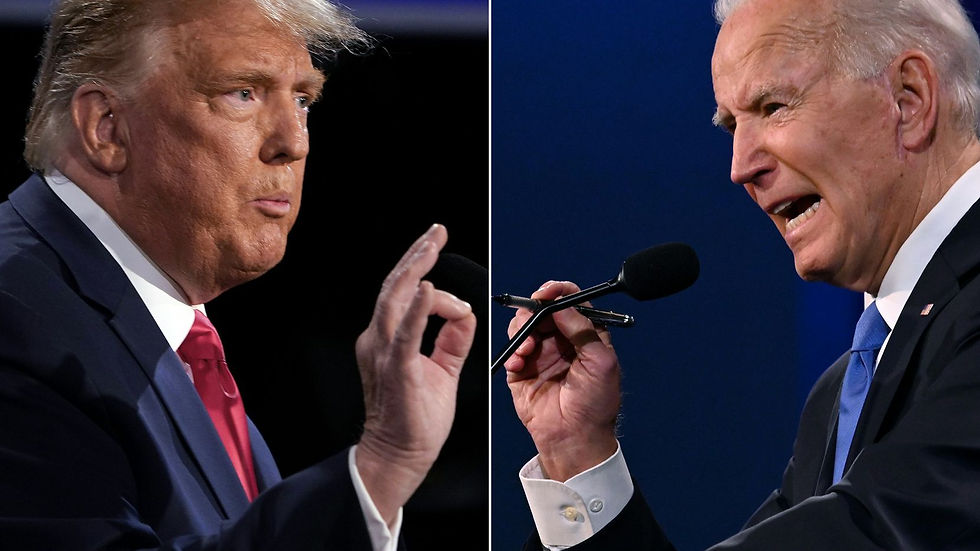Understanding Political Socialization is Like Owning a Time Machine.
- charlottenoeljones
- Sep 5, 2021
- 3 min read

Political socialization is the process in which children learn and develop attitudes about politics. Often, children will learn about politics from authority figures in their lives and usually political socialization teaches kids to think about the government as a legitimate institution they should respect. Political socialization is a part of why the United States' democracy has endured. An example of good political socialization would be your elementary teachers making you stand for the pledge of allegiance every morning. Also, learning about political socialization is important when understanding why certain groups think the way they do and what the next generation of voters will look like.

One important phenomenon political socialization can explain is the generational gap in voting and politics. Each generation has become increasingly more and more democratic. In a recent study done by the Pew Research Center, 62% of voters between 24-29 said they want a democrat in congress ("The Generational Gap in Politics", 2018). Moreover, more young voters than before are pro-immigration and believe racial discrimination is a huge problem in the United States. Understanding what values and beliefs millennials were taught as children can help political scientists study this better. One reason millennials may vote liberal is because they are more racially diverse. The same study said the racial makeup of millennials is only 56% white, whereas boomers are 72% white and Gen x are 61% white. This means more minorities, who typically vote democratic are voting, and white children are growing up and being socialized in more diverse environments. Another reason millennials may be more democratic is because many of them were children or teenagers when Obama was in office. Growing up and seeing diversity in politics can influence your attitudes on certain ideas. Now, children are being socialized in a more diverse and accepting environments and as political scientists have learned, this has had a huge effect on voting.

Another important part of political socialization are agents of socialization (Political Socialization, 2016). That is, adults or institutions who passively encourage kids to have certain attitudes and ideas about politics. Agents of socialization can be family, school, teachers, the church, the media, and more. Depending on the pre-existing ideas within these organizations or of these people, children will develop different values and will have different levels of political legitimacy. For example, a child who grows up in an Atheist household will be more likely to support working women more than a child who grows up in a Jewish household (Wormald, 2015). Political socialization is important to understand because what ideas are instilled into kids will have effects on them for their whole life (Strother et al, 2020). For example, a child who grows up in a modern conservative house is less likely to get a college degree than a child who grows up in a modern liberal household. Also, politicians trusts these agents to socialize children to respect and obey them . An example of 'good' political socialization is bringing school children down to the local police and firefighter stations and teaching them to respect authority. Conversely, an example of 'bad' political socialization is teaching children that voting is unimportant and the government is evil.

Political efficacy is an integral part of political socialization. (Political Socialization, 2016). People with high levels of political efficacy believe they can make real and significant change in politics. If children are socialized correctly, they will be more likely to vote and work with politicians to bring about change. It is important for citizens to participate in politics in the United States and have strong levels of political efficacy because it makes the concept of democracy more legitimate.
In conclusion, political socialization can be helpful when predicting voting trends in the future. Researchers can look at what kids are seeing on the news and learning in school or at home today and guess what political party they will affiliate with when they are grown. Also, political scientists can predict what the main issues in politics will be in a decade or two by studying political socialization. Good political socialization is also important if politicians want to citizens to trust and support the federal government.
References
“The Generation Gap in American Politics.” Pew Research Center - U.S. Politics & Policy, 1 Mar. 2018, https://www.pewresearch.org/politics/2018/03/01/the-
Wormald, Benjamin. “Chapter 4: Social and Political Attitudes.” Pew Research Center & Religion & Public Life Project, 3 Nov. 2015,
Strother, Logan, et al. “College Roommates Have a Modest but Significant Influence on Each Other’s Political Ideology.” PNAS, vol. 118, no. 2, Nov. 2020.
[Author removed at request of original publisher]. “6.2 Political Socialization.” University of Minnesota Libraries Publishing Edition, 2016. This Edition Adapted from a Work Originally Produced in 2011 by a Publisher Who Has Requested That It Not Receive Attribution. , 16 Nov. 2016,



Comments